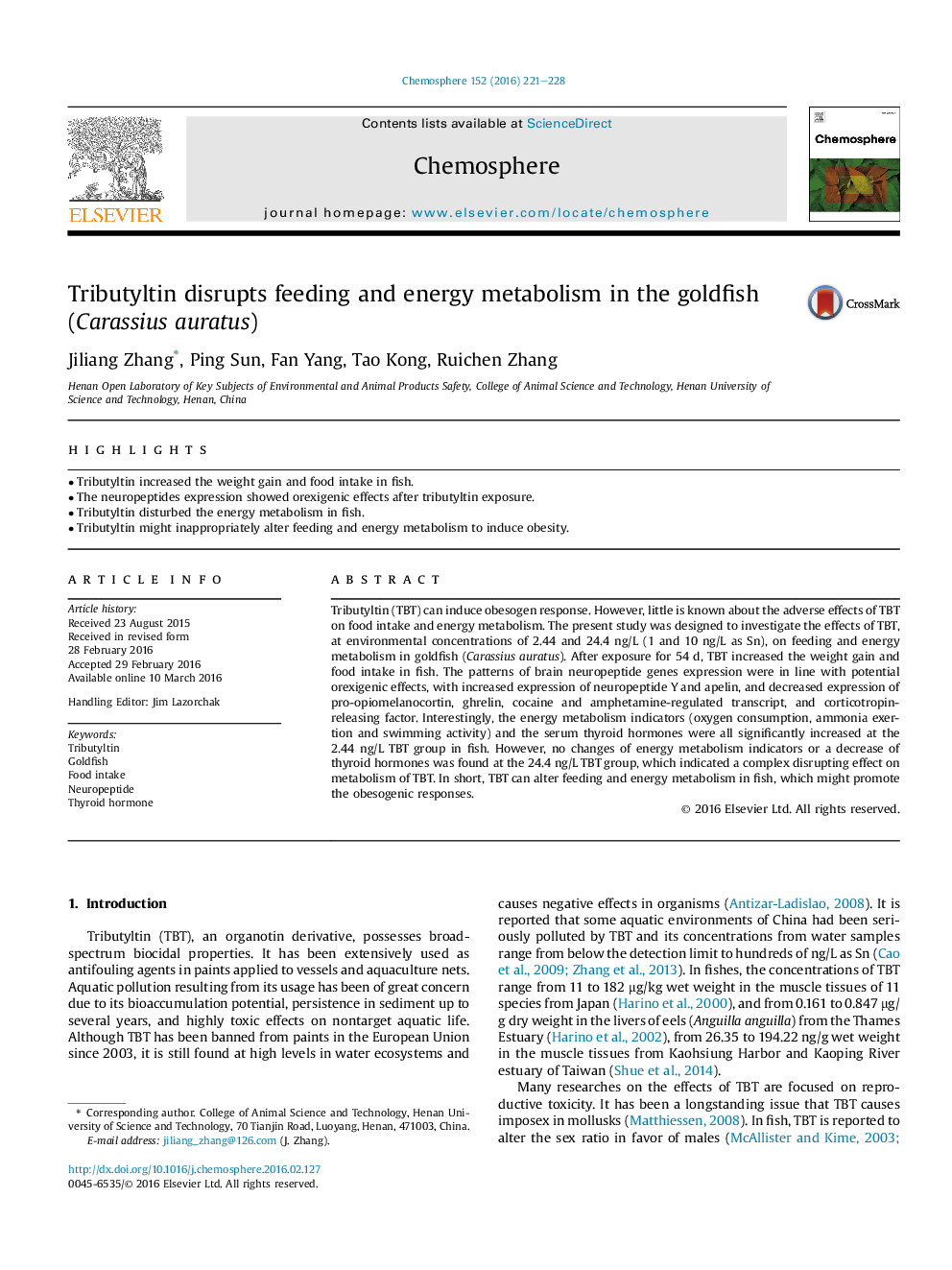| Article ID | Journal | Published Year | Pages | File Type |
|---|---|---|---|---|
| 6306972 | Chemosphere | 2016 | 8 Pages |
Abstract
Tributyltin (TBT) can induce obesogen response. However, little is known about the adverse effects of TBT on food intake and energy metabolism. The present study was designed to investigate the effects of TBT, at environmental concentrations of 2.44 and 24.4Â ng/L (1 and 10Â ng/L as Sn), on feeding and energy metabolism in goldfish (Carassius auratus). After exposure for 54Â d, TBT increased the weight gain and food intake in fish. The patterns of brain neuropeptide genes expression were in line with potential orexigenic effects, with increased expression of neuropeptide Y and apelin, and decreased expression of pro-opiomelanocortin, ghrelin, cocaine and amphetamine-regulated transcript, and corticotropin-releasing factor. Interestingly, the energy metabolism indicators (oxygen consumption, ammonia exertion and swimming activity) and the serum thyroid hormones were all significantly increased at the 2.44Â ng/L TBT group in fish. However, no changes of energy metabolism indicators or a decrease of thyroid hormones was found at the 24.4Â ng/L TBT group, which indicated a complex disrupting effect on metabolism of TBT. In short, TBT can alter feeding and energy metabolism in fish, which might promote the obesogenic responses.
Related Topics
Life Sciences
Environmental Science
Environmental Chemistry
Authors
Jiliang Zhang, Ping Sun, Fan Yang, Tao Kong, Ruichen Zhang,
